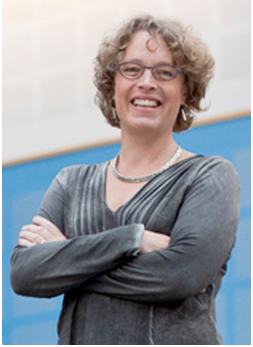Ena Voûte has, after 25 years in industry, returned to the faculty Industrial Design Engineering at the Technical University of Delft where she obtained her MSc as dean.
After her thesis on packaging at Unilever she joined as marketer at Langnese in Hamburg. After that for the margarines in the Netherlands (a.o. Becel, Blue band) and Kuner in Austria and global roles.
A short period at the internet start-up Independer.nl and consultancy Altuïtion broadened her view on innovation and design.
The last decade she has been working for Philips, as global business line manager in Consumer Lifestyle and as CEO and CMO in the Lighting division
Innovation always plays a role for Ena. Improving people’s lives & designing (y)our own future are key drivers.
Being back at Industrial Design Engineering at the TU Delft I realize again how much designers can contribute to society. As a designer, you’re trained to connect all sorts of different perspectives. We focus specifically on the human side, how to align people and technology with each other and subsequently to see whether the design is also commercially feasible. The knowledge gained since our inception in 1969 is passed on to our students and new knowledge is continuously being added through research. We started out as product designers. At a later stage, services were added, and now we even design complete systems to improve people’s lives. In the coming years, we will be focusing on 5 themes:
- Unlocking people: Releasing the inherent power of people through behavioral change. Many of the problems we face come about because we behave as we do. If we could change this, we would be able to improve the way we take care of ourselves and other people.
- Meaningful interactions: How technology is attuned to humans, especially in connection with the ubiquitous presence of internet and interaction with new materials.
- Re(d)use: Better use of the available resources so that our planet is not “used up”. We examine designing with materials, including those that are scarce, and the reuse of these, in order to arrive ultimately at a circular economy that goes beyond C2C.
- Care for our health: Healthcare, and in particular growing old with vitality. Living independently for longer will increase the joy of living and ideally cost less.
- People in transit: people are continuously on the move. We design for seamless journeys with public transport and at airports.
The first two themes have a strong integrative character for our individual areas of expertise, the last three focusses on 3 societal challenges as described in the funding programmes in Europe that make us tick specifically.

